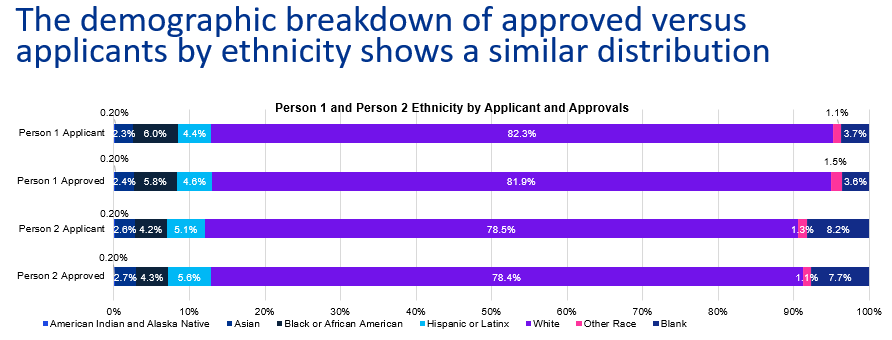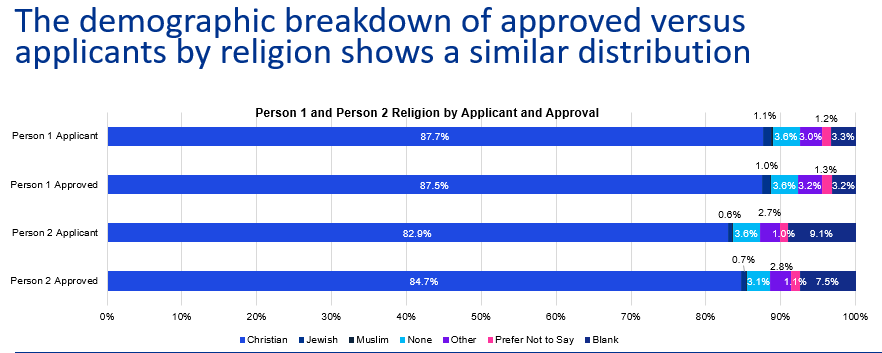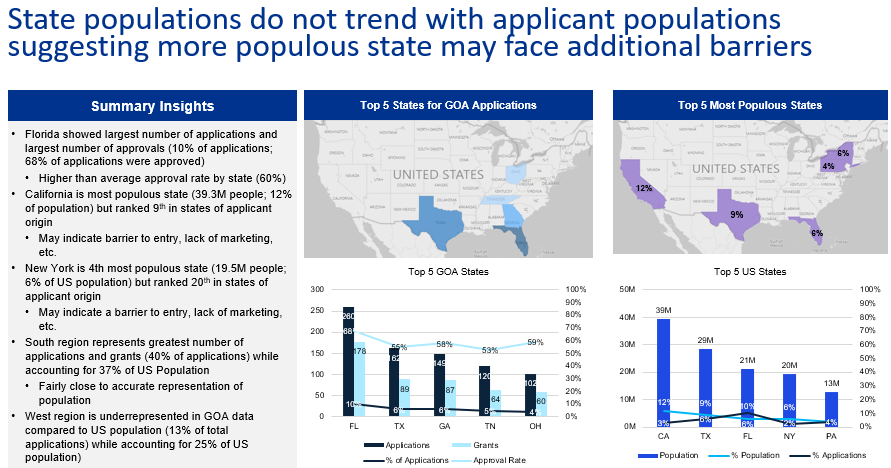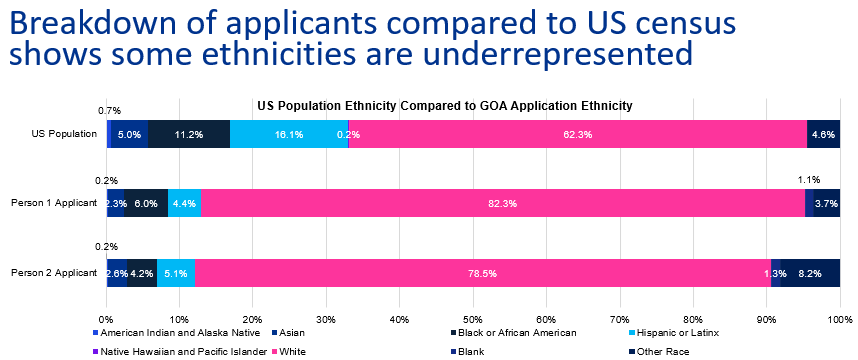KPMG Data Citizens With Purpose
Gift of Adoption engaged KPMG’s Data Citizens with Purpose (DCWP) for a second pro bono project with the following two objectives:
- What demographic trends, if any, can be identified for families who request a grant through GOA?
- How do the demographics of those requesting and/or receiving grants compare to the demographics of their respective community, based on US census data?
Objective 1 Finding: The demographic distribution of approvals versus applicants shows a parallel distribution based on ethnicity, religion, and household income.

 GOA Response: This finding reinforces the findings of our grant program review that found no unintentional/unconscious bias in our grant selection program.
GOA Response: This finding reinforces the findings of our grant program review that found no unintentional/unconscious bias in our grant selection program.
Objective 2 Findings: State populations do not trend with applicant populations suggesting more populous state face additional barriers to adoption. GOA race/ethnicity data does not trend with census ethnicity data suggesting there is room for the adoption industry to improve outreach to diverse communities to adopt.


GOA Response: There is a correlation between the states with the most grants and the age/fundraising sophistication of those state chapters (meaning the states with our most successful chapters are able to award more grants). As chapters in, for example, CA and NY age and raise more funds, grant awards and outreach in those states will increase.
The first phase of the KPMG Data Citizens with Purpose project found that GOA race/ethnicity data tracked closely to the race/ethnicity data of adoptive parents in the U.S. as found in the NCFA Profiles in Adoption study and that the race/ethnicity of adoptive parents in the U.S. does not track closely to the race/ethicity of the total U.S. population suggesting there is an opportunity increase the numbers of Americans from underrepresented groups who adopt. This can can done through increased education and outreach and by removing financial barriers to adoption.